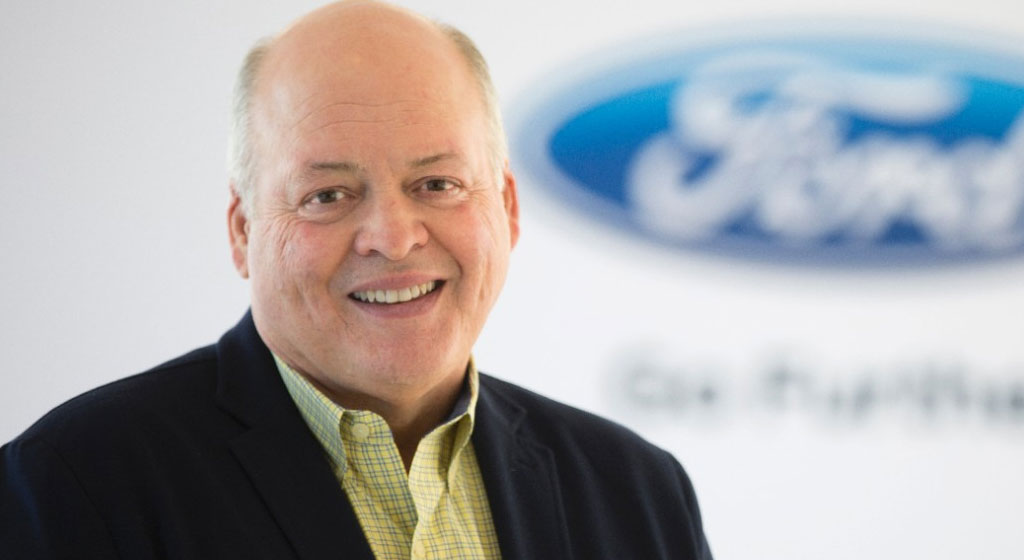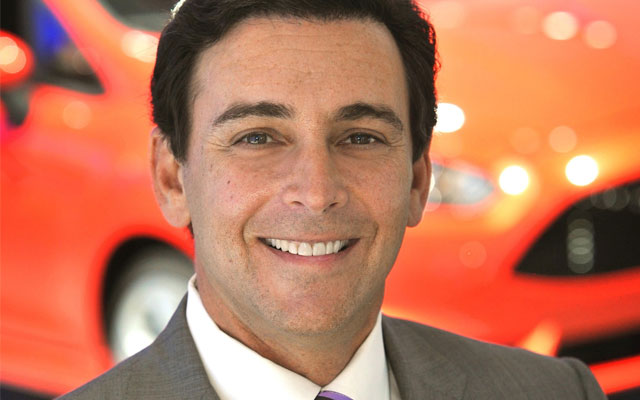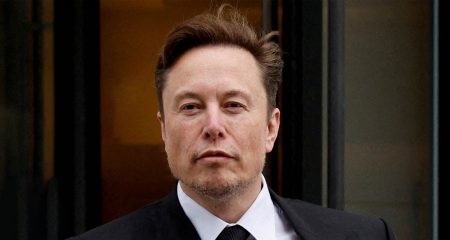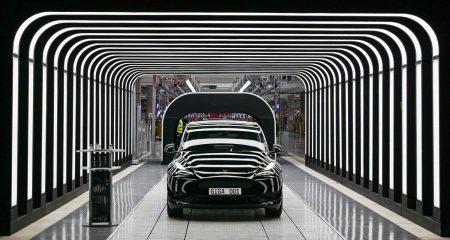
Jim Hackett once sold office furniture to Apple co-founder Steve Jobs. He also landed Jim Harbaugh to coach University of Michigan football. Neither were easy tasks.
Now he has to convince investors and car buyers that Ford Motor Co has a better idea for self-driving vehicles than the smarties in Silicon Valley — while dodging potential flak from US President Donald Trump.
Hackett replaced Mark Fields on Monday as CEO of the 114-year-old car maker, which is struggling with declining profits and disappointing stock performance.
While he’s spent most of his career running a furniture business, the 62-year-old Hackett has a reputation as a visionary executive comfortable in the high-tech world, who’s also willing to take the scalpel to a workforce. In his 20 years as Steelcase’s CEO, Hackett cut 12 000 jobs and shifted the company from just making furniture to re-imagining how people work.
He faces big challenges trying to overhaul a high-profile company like Ford as he did Steelcase. One could come from the White House. Should Hackett find himself cutting jobs at Ford, he’ll risk the wrath of Trump, which his predecessor felt so painfully when deciding to move small-car production to Mexico. Hackett shrugged off the prospect when asked about his history of utilising south-of-the-border production at Steelcase.
“We are a global company and we want to own our strategy about where we play,” Hackett said in response to a reporter asking about Trump’s squawking over Ford building cars in Mexico. “We will be producing product all over the world. We have to do that.”
Fields came under pressure from Ford’s board this month ahead of an annual shareholder meeting where investors excoriated management for a poorly performing stock price. Ford shares fell 37% during Fields’s almost three-year tenure, dropping the company’s market capitalisation below Tesla. The car maker announced a salaried-worker buyout programme last week to show it was moving to cut costs and shifting expertise toward technology.
Since March 2016, Hackett has been running Ford Smart Mobility, a subsidiary that coordinates Ford’s forays into robot cars and ride sharing. He said both his tenure as Steelcase’s CEO and his interim role as athletic director at the University of Michigan were analogous to his new situation at Ford.
“If you look at Steelcase, I stepped in when the CEO at Steelcase left suddenly,” Hackett said in an interview. “All three of these assignments are similar in the regard that you have to come in and do what we have to do.”
What Hackett had to do at Steelcase was cut thousands of jobs, even dismissing the best man from his wedding, according to Automotive News. He also closed about half the company’s facilities and moved some work to Mexico.
But it was his touch with the tech crowd that caught Bill Ford’s eye. When Hackett was on the car maker’s board of directors from 2013 to 2016, Bill Ford took them on a field trip to the San Francisco Bay Area.
Hackett hugs
“We met with a number of the leaders in Silicon Valley and every one of them walked up to Jim and gave him a hug,” Bill Ford recalled on Monday. “Silicon Valley culture is very, very different certainly than from the industrial Midwest. To see Jim not only navigate that so well, but to be held in such high regard, it made an impression on me.”
Hackett recalled also making an impression on the famously temperamental Jobs. When Steelcase invested in the design firm Ideo in 1996, Jobs joked to a mutual friend that competitor Herman Miller was the better choice for office furniture. That led Hackett to personally sell Jobs on the merits of the products Steelcase offered. Soon, Apple’s offices were filled with Steelcase furniture.

Hackett is the right kind of CEO both to make day-to-day decisions and link them to the future, said David Kelley, Ideo’s founder, who introduced Hackett to Jobs and other Silicon Valley leaders including Inuit’s Scott Cook.
“I don’t think you could name somebody in Silicon Valley that he hasn’t hung with, he was here all the time,” said Kelley, who continued consulting with Hackett as he ran Ford Smart Mobility. “He’s not just a pure visionary kind of crazy person, he’s a real CEO.”
One of the ideas Hackett had in the early days at Steelcase — possibly the first application for reserving conference rooms electronically — is still sold as a product at Steelcase today, said Jim Keane, who succeeded Hackett as Steelcase’s CEO after working under him for 17 years. Hackett coined the phrase, “We spaces instead of I spaces”, while at Steelcase to describe the shift away from cubicles to an open-space environment.
Family ties
Another similarity between Ford and Steelcase is the family role on the board of both companies. At Steelcase, the descendants of the founding families still have representatives on the board and control a majority of the voting rights. At Ford, the founding family maintains 40% of shareholder voting control through a special class of stock. Two family members are directors.
“You actually can have no more committed shareholders because these folks put most of their net worth in the business,” Hackett said of family involvement in both boards. “Their interests are so aligned with everybody else. So I love that.”
Born in Columbus, Ohio, Hackett graduated from the University of Michigan in 1977, with a degree in finance, where he was also a centre for the football team.
Hackett said one of the people he told about his new job at Ford on Sunday was Harbaugh, the University of Michigan coach he hired. Hackett came in as interim athletic director and changed an “unbelievably toxic” mood at the university, according to John U Bacon, who’s written four books on Michigan football.
It was soon clear, Bacon said, that “adults are in charge”. — (c) 2017 Bloomberg LP




